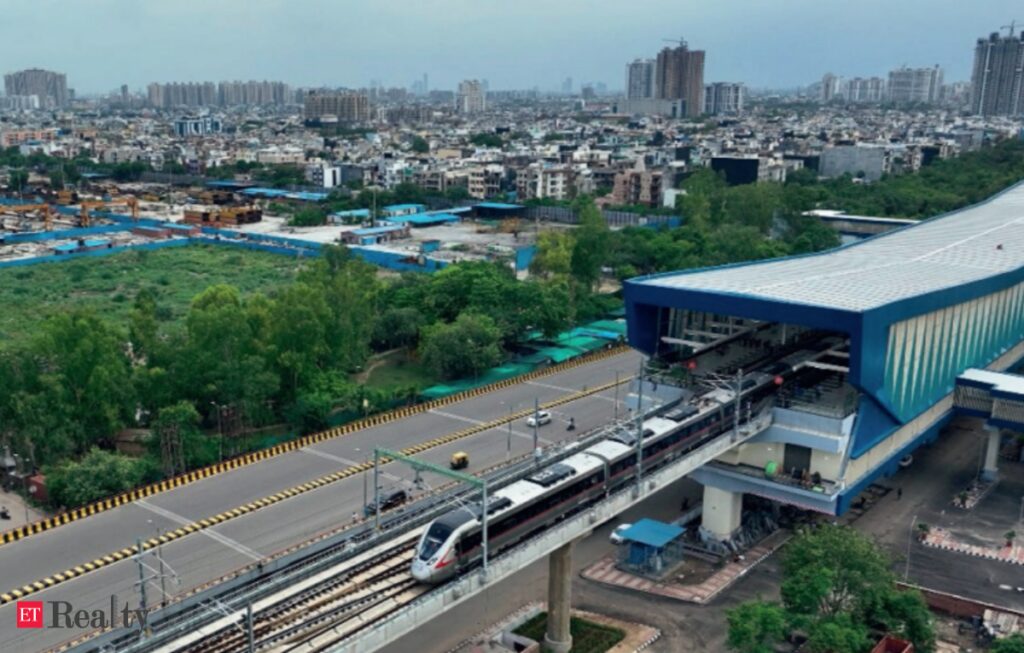GHAZIABAD: The Delhi Metro Rail Corporation (DMRC) has submitted a revised route plan to extend the Blue Line from Noida Electronic City and suggested that the last proposed station at Sahibabad be integrated with that of the Rapid Rail there.
The Sahibabad metro station – according to the DMRC report – will be built opposite the existing Sahibabad Rapid Rail station in Vasundhara. The two stations – on either side of the Link Road – will be connected by a foot overbridge. This will allow passengers to transit between the Blue Line and the Delhi-Meerut Rapid Rail corridor without having to exit the premises.
DMRC had submitted its first report to extend the Blue Line to Sahibabad in 2018. Over the next few years, the plan was revised multiple times, primarily to cut down the project cost. When work began on the Rapid Rail’s alignment, DMRC was asked to come up with a plan to integrate the stations at Sahibabad.
“The focus now is on multi-modal integration. So, the 5.2km metro route will culminate at Sahibabad and will be integrated with the Namo Bharat station on the other side of Link Road,” said Manvendra Singh, the chief engineer at Ghaziabad Development Authority, which had asked DMRC for the revised report.
The metro route, the DMRC report says, will have five stations through Indirapuram and Vasundhara. These stations are Vaibhav Khand, DPS Indirapuram and Shakti Khand, which will run along the CISF Road. The other two stations are Vasundhara Sector 5 and Sahibabad.
“From the Kanawani culvert, the route will enter Vasundhara and pass through the township till it reaches Sahibabad. Since the entire route will be elevated, we won’t need to acquire land parcels. Pillars will come up along the road medians,” Singh told TOI.
The other arm of the Blue Line – Dwarka to Vaishali – will also have an interface with Rapid Rail, but at Anand Vihar in Delhi. The Vaishali station, incidentally, is a short distance from Rapid Rail’s Sahibabad station on the same Link Road.
The UP government has come out with a cost sharing formula under which it will contribute 80% of the metro route’s estimated expenditure of Rs 1,517 crore through its agencies. GDA and the Housing Board will equally share the state government’s promised fund. The remaining 20% funds will come from the Centre.
Fund-sharing disagreements between agencies had for long affected the metro extension’s progress to a large extent. According to an earlier plan, the UP government was supposed to bear 50% of the project cost, while the Centre was to fund 20%. Agencies such as the GDA, Housing Board and the municipal corporation were to bear the remaining 30% of the cost. This plan, however, was eventually rejected by the state government.
GDA, which is reeling from a cash crunch, is now planning to take a loan from the NCR Planning Board to fund its share, Singh said.

